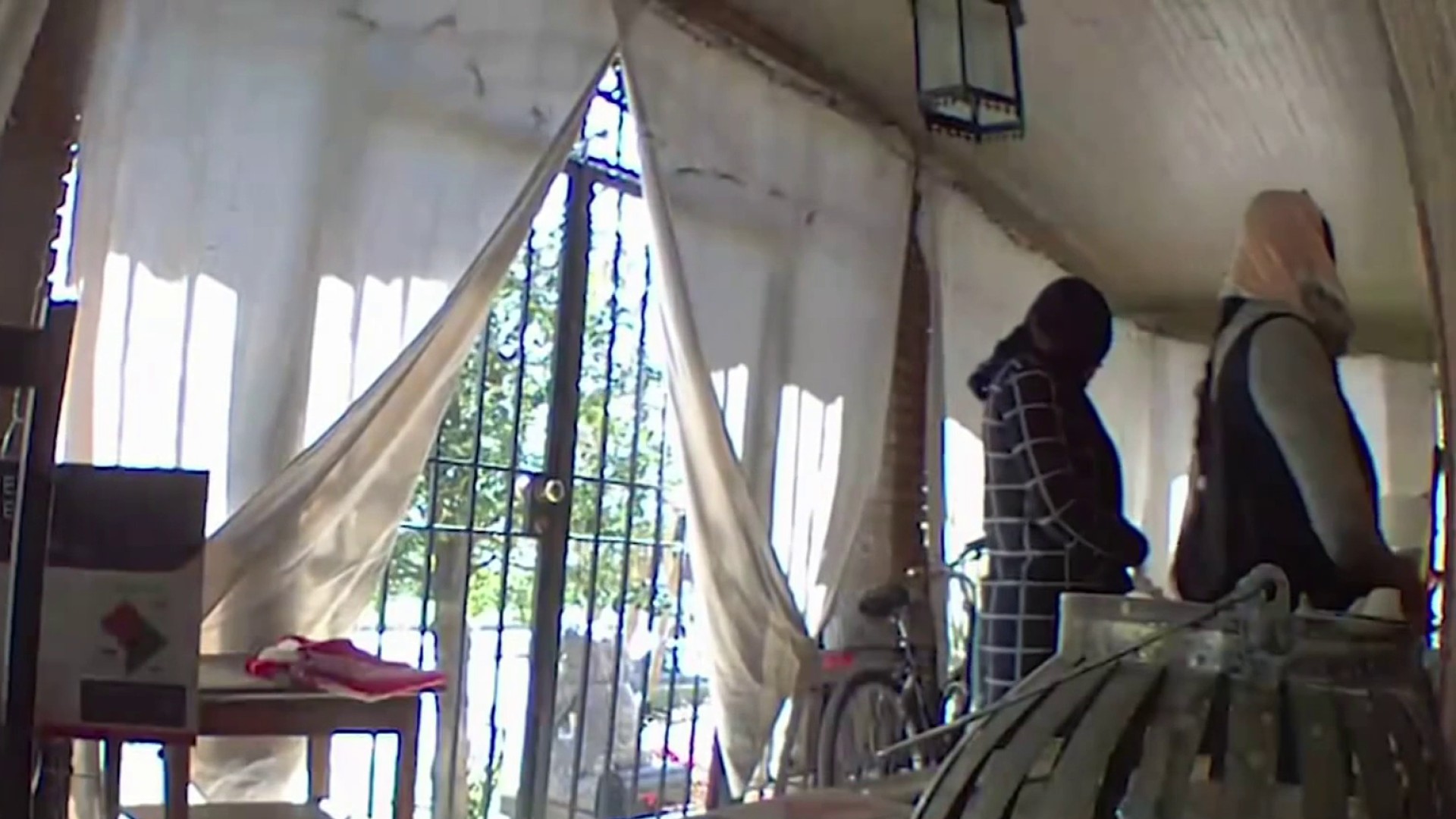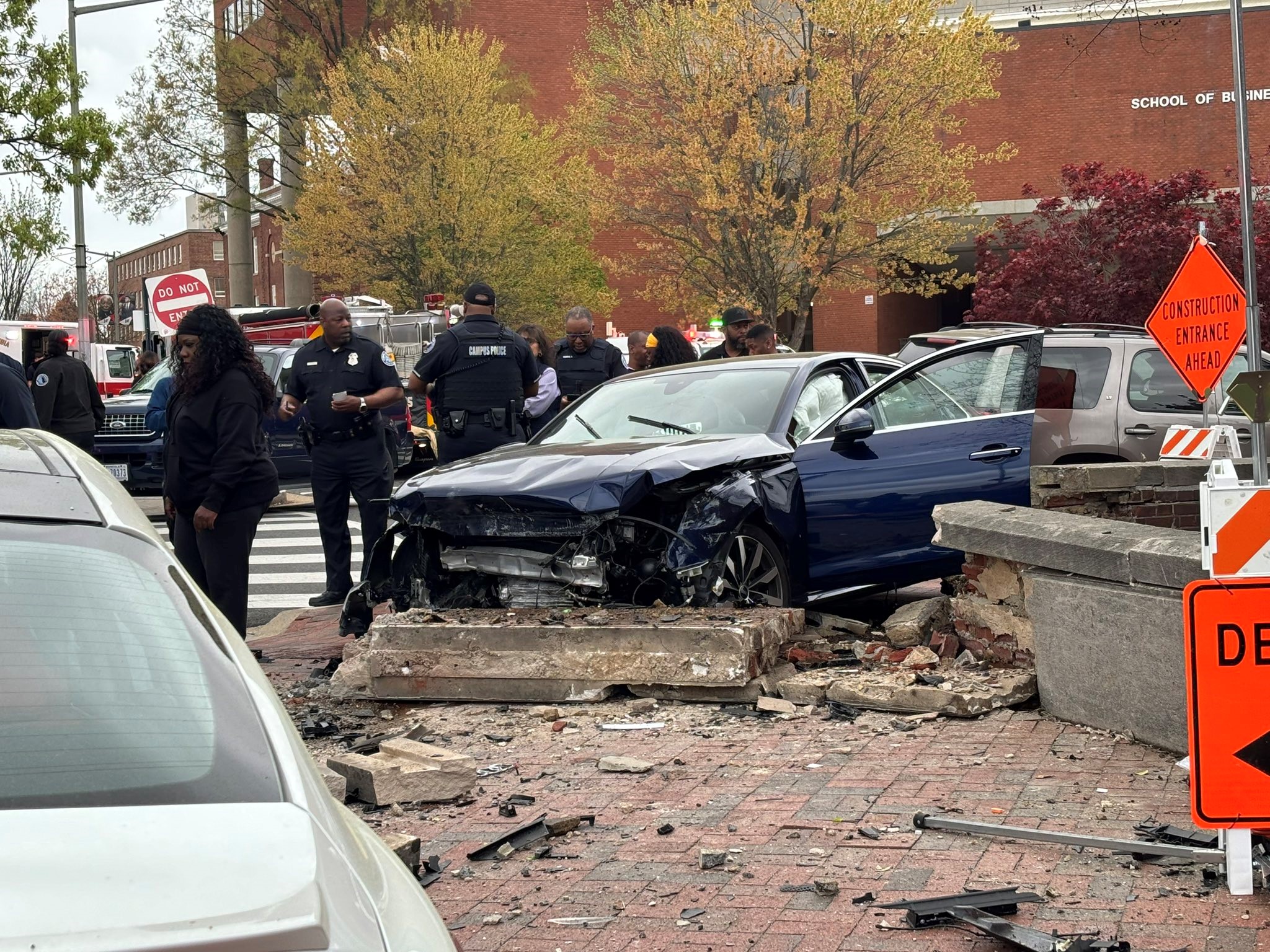A plastic, severed foot, a magnifying glass, fingerprints – what appear to be props for a forensic crime show are real-life tools for a group of students in D.C.
"My favorite part is actually forensic science,” said Kenia Montague, a sophomore at National Collegiate Preparatory Public Charter High School in Southeast D.C.
Kenia is showing a DNA crime scene exhibit at the U.S.A. Science and Engineering Festival, the largest science festival in the country, for the 100 Black Men of Greater Washington, D.C., an organization that mentors minority middle- and high-school students in the District.
The organization’s “STEM The 100 Way” program exposes students like Kenia to STEM in the hopes they will pursue science, engineering, technology or math in their future careers.
"We believe that the next Bill Gates or Mark Zuckerberg probably resides somewhere in an urban or a rural area and if we don't do the right things to get them exposed, America is going to lose out on the next great phenomenon," said Kevin Smith, STEM director for 100 Black Men.
While the demand for STEM professionals continues to rise, the number of people educated in STEM fields is low, according to the National Action Council for Minorities in Engineering. Even fewer women and minorities are choosing to pursue careers in STEM.
Less than 5 percent of science and engineering jobs are held by African-Americans, according to a 2015 study from the National Science Foundation. About half of all science and engineering workers are white men, NSF said.
Local
Washington, D.C., Maryland and Virginia local news, events and information
To change that, Smith said 100 Black Men is using “edutainment” and “avant garde” concepts to teach STEM.
"We're demystifying the stigma that comes with understanding STEM,” Smith said. “You make it very directly relative to them so that way it doesn't seem so arduous."
Video games, for instance, become an opportunity to teach kids how to code.
"And the next thing you know, the kids were building a video game within an hour or two and they were like, 'This is a career?'"
Smith, a biomedical engineer, said he grew up in an underprivileged area of Dallas but was lucky to have parents and a community to give him the drive to succeed.
"I had a lot of people pushing me, but a lot of these kids don't have that push."
STEM The 100 Way teaches middle and high school students in Ward 7 and Ward 8, areas of the District that are predominately black.
"We think that getting STEM in underserved areas is a way for them to overcome some of their obstacles," said Ivory Johnson, president of 100 Black Men of Greater Washington.
But introducing students to STEM is only the first step. Keeping them interested is also challenging.
Smith compared learning STEM skills learning a language; the younger students learn, the more likely they are to catch on quicker. But, he said, a child’s interest typically peaks by the 8th grade -- and that is when they decide whether or not they want to stick with STEM.
Smith said his group is fighting other pressures, too.
"I know in the minority and underrepresented community, you're frowned upon a lot of times for showing that you have interest in learning, in higher learning," Smith said.
Fortunately, students who fall in love with STEM fall hard.
"We have seen the light go off on all these children," Smith said.
Tyja Wallace is one of the more than 60 students at National Collegiate Preparatory who has been taking lessons from 100 Black Men every Saturday for the past eight weeks.
"For black men, period, to come out and help black children at a school in Southeast, it's a good thing because we barely had that,” Tyja said.
Smith and Johnson said to continue to narrow the gap, more people need to invest resources into minority communities.
"The way for this to move forward is we need more support from the black middle class and our community to help finance some of these programs so we don't have to lean on others to help us clean up our own house," Johnson said.
"We can do anything we want to do, just put our mind to it," Tyja said.
Click here to learn more about 100 Black Men of Greater Washington, D.C.



